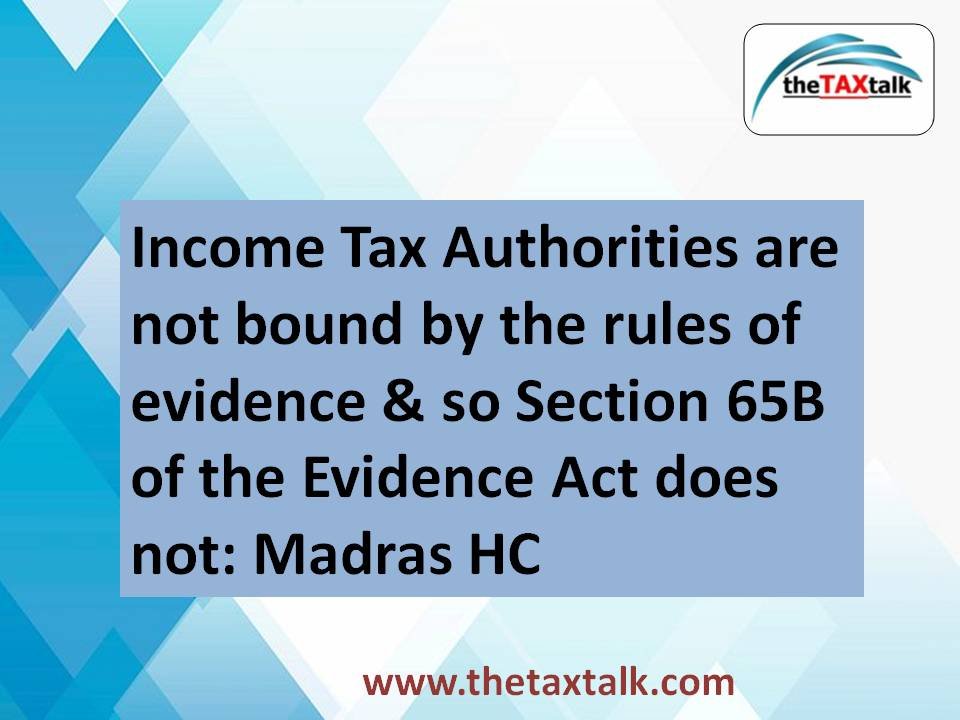![]()
Income Tax Authorities are not bound by the rules of evidence & so Section 65B of the Evidence Act does not: Madras HC
The order issued by the Hon’ble Madurai Bench of the Madras High Court
In case of The ACIT Vs. M/s. VV Minerals & M/s. Vijay Cements. (30.04.2025) has reiterated that the Income Tax Authorities are not bound by the rules of evidence,
Crux of the case:
The validity of digital evidence collected by the Income Tax Department during search and other proceedings under the Income Tax Act, 1961, in conjunction with the Indian Evidence Act, 1872 (now Bharatiya Sakshya Adhiniyam, 2023).
Aside from issues like the supply of 101 Panchnamas and the opportunity for cross-examination of the witnesses, the Hon’ble High Court delivered a significant judgment clarifying the validity of digital evidence collected by the Income Tax Department. (Para -11 and 12 of the Judgement)
1. The Hon’ble High Court noted that assessment proceedings before the Income Tax Authority are quasi-judicial in nature. Section 1 of the Indian Evidence Act, 1872 (now Bharatiya Sakshya Adhiniyam, 2023) states that its provisions apply only to judicial proceedings before courts.
2. The Hon’ble Apex Court has consistently held that Income Tax Authorities are not bound by the rules of evidence, and thus, Section 65B of the Evidence Act does not apply to income tax proceedings.
3. The Hon’ble High Court held that the Digital Evidence Investigation Manual, 2014 issued by the CBDT has no statutory force and cannot override legal principles set by the Hon’ble Apex Court. It emphasized that no statutory provision makes the Evidence Act applicable to assessment proceedings under the Income Tax Act, nor can this be established through the CBDT manual.
Key Takeaways:
Digital evidence collected during search proceedings doesn’t need expert authentication or certificates under Sections 65A and 65B of the Act.
The CBDT Manual for authenticating digital evidence under Sections 65A and 65B is not applicable, as these provisions are not part of the Income Tax Act, 1961, and contradict the Hon’ble Apex Court’s findings.
This order aligns with the latest amendments to the Income Tax Act, 1961, and the proposed Income Tax Bill, 2025.
The copy of the order is as under:


